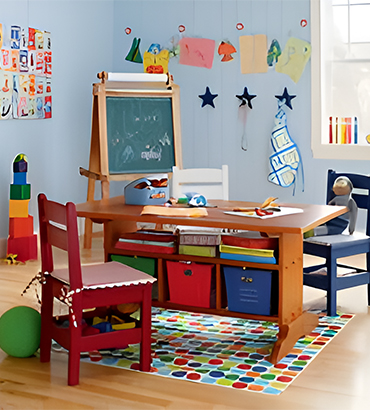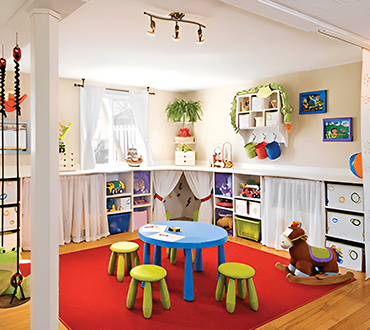
Montessori education was founded in 1907 by Dr. Maria Montessori, the first woman in Italy to become a physician. She based her educational methods on scientific observation of children’s learning processes. Guided by her discovery that children teach themselves, Dr. Montessori designed a “prepared environment” in which children could freely choose from a number of developmentally appropriate activities. Now, nearly a century after Maria Montessori’s first casa dei bambini (“children’s house”) in Rome, Montessori education is found all over the world, spanning ages from birth to adolescence.
Up to the age six, Montessori emphasizes learning through all five senses, not just through listening, watching, or reading. Children in Montessori classes learn at their own, individual pace and according to their own choice of activities from hundreds of possibilities. The are not required to sit and listen to a teacher talk to them as a group, but are engaged in individual or group activities of their own, with materials that have been introduced to them 1:1 by the teacher who knows what each child is ready to do. Learning is an exciting process of discovery, leading to concentration, motivation, self-discipline, and a love of learning.
There are more Montessori programs for ages 3-6 than for any other age group, but Montessori is not limited to early childhood. Many infant/toddler programs (ages 2 months to 3 years) exist, as well as elementary (ages 6-12), adolescent (ages 12-15) and even a few Montessori high schools.
You can pay the Fee online using either a debit or credit card (otherwise it can be paid by credit or card over the phone, among other options). Applications can only be processed once the Registration Fee has been paid.
Research studies show that Montessori children are well prepared for later life academically, socially, and emotionally. In addition to scoring well on standardized tests, Montessori children are ranked above average on such criteria as following directions, turning in work on time, listening attentively, using basic skills, showing responsibility, asking provocative questions, showing enthusiasm for learning, and adapting to new situations.
